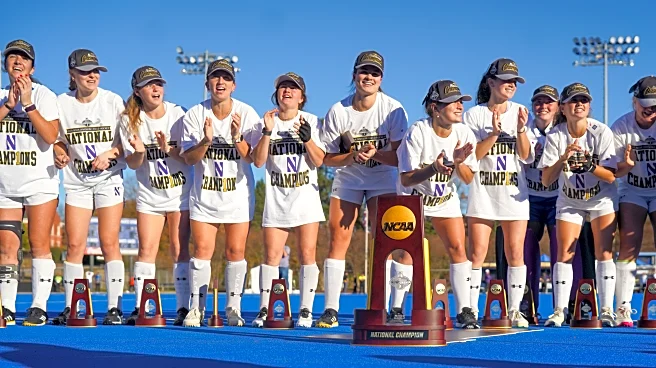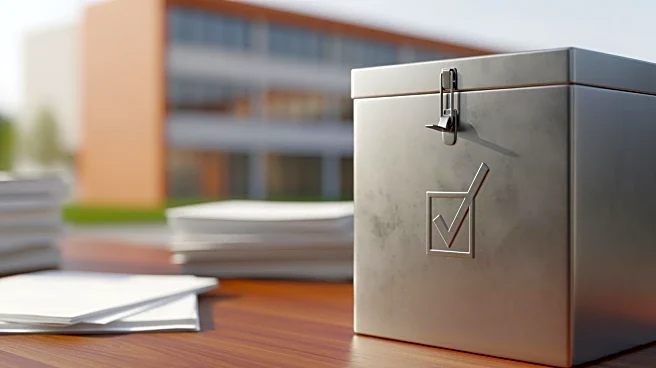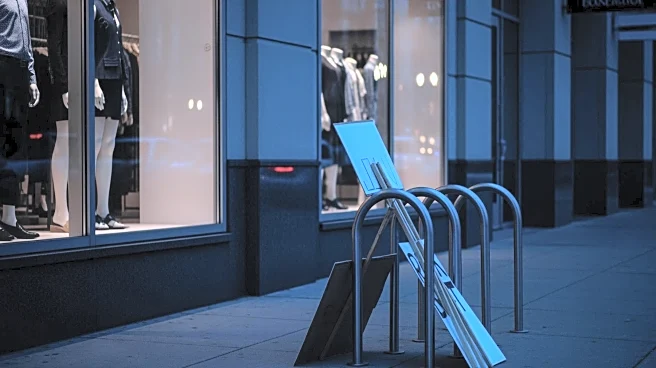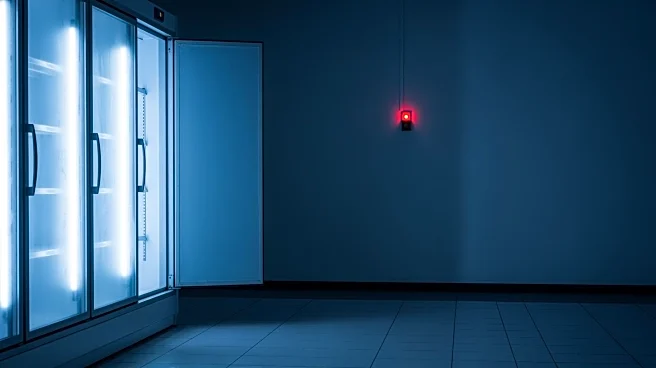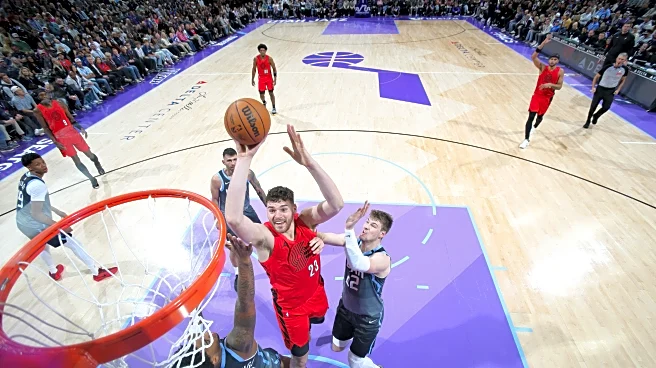What a weekend. After both myself and Inside NU’s Matt Campbell provided a litany of coverage from Durham, I’m going to keep the final column of the year short and focus on awards, instead of writing my usual
two big takeaways. So here we go!
First off, Northwestern winning it all aside, this past weekend should have been an incredible advertisement for the sport of field hockey in the United States. People I’ve spoken to in the field hockey world always talk about wanting the sport here to grow, and Final Fours like these are steps toward making it possible. With the amount of high-quality, rollercoaster games and narratives involved all weekend, people watching the sport for the first time will certainly want to continue.
Second, Durham was an incredible hosting site for this tournament, especially from a reporter standpoint. With all due respect to Ann Arbor, which I travelled to last season, the atmosphere and setup at Duke made for a livelier experience that really amplified Northwestern’s win. Between the fans being right beside the press box, the tailgate tents for each of the four teams being lined up side-by-side next to the field and a larger media pressence compared to last year, it felt like there was so much stuff that I could report on in-person that I wouldn’t have been able to do covering the event virtually.
All that goes to say is that at the center of this all is Northwestern. The Wildcats were already the storyline of the tournament on selection Sunday, after their unseeded status in the NCAA bracket shocked the field hockey world and launched debates about the legitimacy of RPI. However, they backed up the anger over their “snub” with some generational performances, culminating with two gritty wins in the Final Four. In two overtime classics, Northwestern took down its rival North Carolina to avenge its 2022 and 2023 title game losses to the Tar Heels, and then beat Princeton in the title game to avenage the Tigers’ regular season victory over the ‘Cats. Between Grace Schulze and Ashley Sessa playing against their former teams, Ilse Tromp basically scoring every single big-time goal and Maddie Zimmer’s storybook NCAA career ending, Northwestern had no shortage of heavy narratives that made its victory a whole lot more memorable.
Weekly Awards
Player of the Week — Maddie Zimmer, graduate midfielder: I went back and forth picking nits to decide between Zimmer and Tromp, but ultimately, I’m not going to argue with the NCAA’s Most Outstanding Player choice. Zimmer’s performance against UNC has a good argument to be the greatest of her career, after she made a critical interception and assisted Olivia Bent-Cole’s goal to make things 3-2 (a moment that Zimmer described as the “turning point” of the game), helped draw the penalty corner and assisted the game-tying goal and then initiated Grace Schulze’s overtime winner. She also found the back of the net first in the title game, on a shot ruled a no-goal because it didn’t hit the backboard, but assisted Tromp’s game-winner while also drawing several penalty corners and playing crucial defense. As a player who always shows up in the biggest moments, it’s fitting that she’s been named MOP for all three of Northwestern’s title runs.
Play of the Week — I talk about this same play in the “Play of the Year” section, so I’ll spare you from multiple explanations for the sake of brevity.
Yearly Awards
Player of the Year — Maddie Zimmer, graduate midfielder: Who else? In the final chapter of her storied career at Northwestern, Zimmer recorded five goals and a career-high 17 assists. But as it always is with her, stats don’t tell the full story of how much she’s done for her team. She’s best known for being the fastest player on the field, NU’s number one option for getting the ball from defense to offense. But she also took a backseat on scoring this season to be the stick-stopper on penalty corners (compared to last season, when she had more reps as a sweeper who shoots on first touch), a role that’s less flashy but still equally important. Defensively, she was the flyer, or the first person coming out of the cage to stop corners, which played a part in why the ‘Cats excelled on corner defense.
Some of Zimmer’s best games included Northwestern’s home opener against Indiana, its NCAA Tournament opener against Yale and her clutch two-assist semifinal game against North Carolina. She’ll surely be favored to win her second National Player of the Year award in a few weeks, wrapping up one of the greatest careers in Northwestern Athletics history.
Honorable mention(s): Ilse Tromp, Ashley Sessa
Rookie of the Year – Juliana Boon, redshirt first-year goalkeeper: No other first-year got meaningful minutes for Northwestern’s squad, so the choice for this one was pretty obvious. But the argument for Boon’s performance is strong enough in itself. In her first year as a starter, she recorded a .775 save percentage (8th in Division I) and .781 goals against average (3rd in Division I), proving to be statistically one of the best goalies in the nation. She also earned Big Ten Goalie of the Year and NCAA All-Tournament Team honors, the latter coming after making three critical saves in the NCAA title game. With her mobility, quick reflexes and strong clears, she’s only going to get better.
Honorable mention(s): N/A
Most Improved Player — Laura Salamanca, sophomore midfielder: After playing just 587 minutes in 2024, the Chilean native gained a full-time position in this season’s starting lineup, and she made good use of it. Salamanca showcased great transition skills and was great on both sides of the ball. Some of her interceptions in the Final Four were game-saving for the Wildcats, and honestly, warranted All-Tournament team recognition (which she didn’t ultimately get). In addition, she also scored two goals — the first in Northwestern’s Big Ten regular-season clincher against Michigan and the second in its one-goal Elite Eight win against Miami (Ohio). Salamanca finished her year with second-team All-Big Ten honors, setting the stage for when she will have to be the midfield leader next season following Zimmer’s departure.
Honorable mention(s): Ella Kokinis, Emilie Kirschner
Best Win — NCAA semifinal vs. North Carolina (Nov. 21): My field hockey-viewing experience is limited to mostly Northwestern collegiate games since 2023, but this past Friday’s NCAA semifinal was objectively the greatest game I’ve ever watched (yes, even better than THAT penalty shootout in the 2023 title game). Although it wasn’t the ultimate trophy-claiming game, emotions clearly ran high because it was a matchup that the ‘Cats had marked on their calendars for two years. Northwestern’s 2-0 and 3-1 deficits, its penalty corner goal with 1:40 left on the clock and the sequence of Reese Anetsberger’s foot foul to Grace Schulze’s game-winner were not good for my heart rate in the press box (especially as the sun set and it started getting a bit chilly in Durham), but it provided to be golden material for a match that surely will be remembered as a classic for years to come.
Honorable mention(s): NCAA championship vs. Princeton (Nov. 23)
Play of the Year — Ilse Tromp’s fourth-quarter goal vs. UNC: There are probably five plays from championship weekend alone that could be in consideration for this one (including the one that quite literally clinched the title), but I’m going to have to go with the goal that saved Northwestern’s season. Had the Wildcats not scored here, North Carolina probably would have run the clock out for a 3-2 win. It was likely the only chance they had to tie the game up, and I can’t get over how perfectly the play was executed. Zimmer made her behind-the-back pass look so easy, and Tromp fired home without any hesitation. To go from Sessa to Bent-Cole to Zimmer to Tromp just like that without making a single mistake, in the most critical moment of the season, is nothing short of incredible.
Honorable mentions(s): Ilse Tromp’s game-winner vs. Princeton (Nov. 23), Ashley Sessa’s baseball goal vs. Ohio State (Oct. 27)
What’s Next?
Despite losing its best player, Northwestern still returns one of the top squads in the nation next season. Its class of 2024, with the likes of Zimmer, Annabel Skubisz and Lauren Wadas, is considered the class that pushed the team to the mountaintop. But the class of 2027, with names such as Ashley Sessa, Olivia Bent-Cole, Ilse Tromp and possibly Maja Zivojnovic (depending on whether she receives an injury hardship year), has helped Northwestern become consistently elite. The 2026 season will be the opportunity for them to take the lead and usher in a new generation of Northwestern field hockey.
Without Zimmer and Greta Hinke, Salamanca and Kate Janssen will man the midfield, while Boon will be more experienced in the cage. It will also be interesting to see if any of 2025’s true freshmen play more minutes in 2026, given that none of them really touched the field in 2025. The ‘Cats also have a crop of newcomers coming from the class of 2030 and I’m sure Fuchs will be trying to grab a few additions from the transfer portal as well.
In the past few seasons, Northwestern field hockey has proven that it is here to stay at the top. Even with a new roster next year, I don’t expect that to change soon.
All in all, I had a really great time writing this column all fall and covering this team. Like with lacrosse last spring, being able to do a deeper dive on a sport without many statistics helped me understand field hockey much better than I did coming into this season. Unfortunately I don’t think I will be running it back next fall, but I have trust that Inside NU will continue to prove elite coverage of the current best team on campus in future years.
